Afghanistan War, Civil Liberties, FBI Intrusion, Human Rights, Surveillance, Targeting Muslims, Torture, War Resister
Podcast: Play in new window | Download
Updates:
- ‘We Steal Secrets’: State Agitprop by Chris Hedges
- Banality of Don’t Be Evil – A Response To The Book – The New Digital Age
- Michael Ratner Discusses Bradley Manning Trial – Hundreds of Protesters
- Get Whistleblowers First Then Journalists
- A Phone Call To Save Lynne Stewart’s Life:
- Attorney General Eric Holder – 1 202 514 2001
- White House President Obama – 1 202 456 1414
- Federal Bureau of Prisons – Director Charles Samuels – 1 202 307 3198 ext 3
——
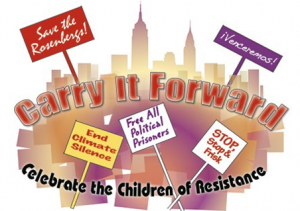
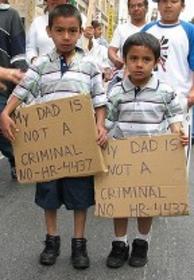
Carry it Forward: Celebrate the Children of Resistance – 60th Anniversary of Rosenberg Execution
Today we speak to Robert Rosenberg, the younger son of Ethel and Julius Rosenberg. He’s an author, activist, attorney and public speaker. He sued the FBI and CIA to force the release of 300 thousand previously secret documents about his parents. Robert founded the Rosenberg Fund For Children which provided educational and emotional needs of both targeted activist youth and children whose parents have been harassed, injured, jailed or died because or during their activism. This week the event Carry it Forward: Celebrate the Children of Resistance – 60th Anniversary of Rosenberg Execution on Sunday June 16, 2013.
Robert Meeropol:
- The Rosenberg Fund For Children is a public foundation that provides for the educational and the emotional needs of the children of targeted activists in the United States.
- I founded this organization in 1990. We help hundreds of children of targeted activists.
- In some ways you can say that the Rosenberg Fund For Children was a vehicle for me to create something positive in response to the destruction that was visited upon me when my parents were arrested when I was just 3 years old.
- Judge Kaufman’s sentencing statement justifying a death sentence after a conviction for conspiracy to commit espionage by using the word treason.
- The parallel today is the Bradley Manning case which is going on right at this moment. He is being charged with conspiracy to commit espionage under the exact same law that my parents were charged under.
- The question being asked is: Is he a whistle-blower or is he a traitor?
- We now know from the government’s own files that my parents had nothing to do with the secret of the atomic bomb.
- The government wanted to make a big show trial and demonstrate that people who wanted to take this conscious driven action posed a threat to the entire nation.
- Sixty years on, this case is just as relevant today as the day it was born.
- The change that has occurred is the government learned the lessons of my parents’ case and has now figured out ways in post 911 America to make all the illegal activities that they engaged in in other to obtain this big show trial conviction in the 1950s legal today.
- We went through hell between the years of the arrest and the execution. I grew up with this sense, this unmet need to do something about this.
- It wasn’t until I was 43 years old in 1990 that I figured out what to do and that was to start a foundation in my parents name that would help children and young people in similar circumstances today.
- Law and Disorder Interview On The Rosenbergs
Guest – Robert Meeropol, the younger son of Ethel and Julius Rosenberg. In 1953, when he was six years old, the United States Government executed his parents for “conspiring to steal the secret of the atomic bomb.” For more than 40 years he has been a progressive activist, author and public speaker. In the 1970’s he and his brother, Michael, successfully sued the FBI and CIA to force the release of 300,000 previously secret documents about their parents. He earned undergraduate and graduate degrees in Anthropology from the University of Michigan, graduated law school in 1985, and was admitted to the Massachusetts Bar
——-


Welcome to the Gilded City of New York: Low Wage Workers Unite
Last month in an article titled Welcome to the Gilded City by The Nation, the collaborative work of editors compiled a detailed overview of Mayor Bloomberg’s legacy. The article assesses the various personas the New York mayor used to further specific agendas, among them are the “top cop” presiding over a vast surveillance program, the union buster waging war on organized labor, the imperialist undermining the city’s term limits. New York City’s income inequality has grown rapidly in the last 3 decades, outpacing New York state and the nation. The article points out that there were choices available to New York City’s government to counter this economic trend yet they’ve been basically ignored.
Lizzy Ratner:
- We’re at a fulcrum moment in New York City, we’re at the end of the Bloomberg era, he is finally term limited at the end of this year.
- In thinking about what New York City is now, we came upon a central theme and that is “inequality.”
- Peel back the cellophane a little bit and what you see is deep struggle, deep poverty.
- Because New York is an emblem sometimes for the larger country, what does it tells us about the country?
- In 1980 about 21 percent of New York City’s population lived at or below the federal poverty line.
- In the last 30 years we’ve had effectively no progress in the realm of fighting poverty in this city.
- In 2011, about 400 thousand people or about 1 out of 10 of the city’s workers, worked by didn’t earn enough money to get out of poverty.
- That same year about 600 thousand people earned 10 dollars an hour or less.
- The point of the metaphor was to contrast these two New York Citys, these two different worlds. The gilded world, which is flashy, which everybody sees on TV, which is the one that’s been promoted by the Bloomberg administration.
- There is this perception of Bloomberg as a great liberal icon. There is a certain disturbing truth to that in that liberalism is being defined these days as social progressiveism.
- We have these sacrificed populations in the city which are being targeted.
- The mayor took control of public schools, claimed control when he took office. The justification for that was this was a way to tame an unruly system, narrow the education gap between students of color and white students.
- One of his signature failures (Bloomberg) was not addressing the horrifying inequality and job loss (during recession)
- Bloomberg Obstructed or Vetoed: Paid Sick Leave Law, Living Wage Bill, Anti-Predatory Lending Bill
- If you want to look at Bloomberg’s failure around poverty you just need to look at homelessness. Homelessness had almost doubled under his tenure.
- A lot of organizations and grass roots groups have started building power and have come together in various ways to change conditions for workers in this city.
Guest – Lizzy Ratner, co-editor of this Nation article. Lizzy is a journalist and co-editor of The Goldstone Report: The Legacy of the Landmark Investigation of the Gaza Conflict.
Past Law and Disorder interviews with Lizzy Ratner
—————————————————–
Afghanistan War, CIA Sponsored Terror, Civil Liberties, Criminalizing Dissent, FBI Intrusion, Guantanamo, Habeas Corpus, Human Rights, Political Prisoner, Prison Industry, Surveillance, Targeting Muslims, Torture, Truth to Power, War Resister
Podcast: Play in new window | Download
Updates:
——-


MOVE Bombing: 28th Anniversary
This week marks the 28th anniversary of an armed police mission in Philadelphia that ended in a helicopter bombing of the headquarters of the group known as MOVE. The fire commissioner in that city allowed a fire to rage unabated at 6221 Osage Avenue in West Philadelphia, killing six adults and five children, destroying 65 homes and leaving more than 200 people homeless. Despite two Grand Jury investigations, and a commission finding that top officials were grossly negligent, no one from city government was ever criminally charged. A recent film called Let the Fire Burn, chronicles the events leading up to the conflagration.
Ramona Africa:
- The government, through the media had mislead people to believe that what happened in May of 1985 was because of complaints from neighbors which is absolutely not true.
- What happened on May 13, 1985 happened because of our unrelenting fight for the release of our innocent sisters and brothers known as the MOVE 9 who were arrested in August 1978.
- After years of abuse, physical abuse, judicial abuse by this system, MOVE babies being killed through miscarriage and a 3 week old baby being trampled to death by police, after countless unprovoked beatings of MOVE men and women, children, even pregnant women, MOVE people took a stand and said listen, we are uncompromisingly opposed to violence, we’re a peaceful people. We’re not stupid and we’re not masochistic or suicidal.
- We do believe in self defense which is the law, the law of life. There is not a species on this Earth that doesn’t defend itself, when threatened, when attacked.
- When MOVE took that stand, the government became enraged.
- They alleged housing code violations, and they wanted MOVE to move out of the home based on housing code violations.
- MOVE people wouldn’t go along with that. A judge gave MOVE people til August 1 to get out.
- On August 2, 1985, a judge issued warrants on any MOVE people he knew of including people he knew were not in the house.
- After the warrants were issued, hundreds and hundreds of cops were sent out to our home.
- They shot thousands of bullets into that house. The fire department used deluge hoses to flood our home.
- The officer that was killed was standing on street level while everybody including the police acknowledged that all MOVE people were in the basement of our home.
- This policeman was shot from a bullet traveling on a downward angle.
- Hours after I was arrested on August 17, the city sent a demolition team out and completely demolished MOVE’s home which was the scene of the crime.
- The MOVE 9 trial was a bench trial, not a jury trial.
- They did it to silence our righteous protest and our unrelenting fight for the release of our family the MOVE 9.
- They came out to our home on Mother’s Day, May 12 1985, with warrants they obtained on May 11.
- The Fire Department as in 1978 was their first mode of attack.
- They came out there to kill, that’s the bottom line.
- When their ten thousand rounds of bullets didn’t kill us, the water hoses, the tear gas didn’t do the job, they concocted a bomb made from powerful military explosives, C4.
- They got the C4 from the federal government, from the FBI.
- The state police helicopter flew over our home without any warning, and two Philadelphia Police bomb squad police officers dropped that bomb on the roof our home. It ignited a fire. They made a conscious decision not to put the fire out.
Guest – Ramona Africa, the sole adult survivor of the 1985 police bombing of the home occupied by members of the MOVE organization. Email Ramona – onamovelleja (at) gmail.com
——–


Assata Shakur Placed On FBI Terror List
Last week, the FBI placed Assata Shakur on its Most Wanted Terrorists list, while the state of New Jersey raised the bounty on her head to 2 million dollars. These actions fall on the 40th anniversary of the 1973 shoot out in in which police allege Shakur killed a police officer during a traffic stop on the New Jersey turnpike. Assata also known as JoAnne Deborah Byron is an African American activist was a member of the Black Panther Party and the Black Liberation Army. Assata Shakur: Understanding the politics behind the FBI’s new attack.
Eugene Puryear:
- I think why a 65 year old grandmother has been put on the FBI terrorist list is a reflection of the United States government’s fear of that which opposes it.
- Assata Shakur was part of the 60s movements . . . a movement that the Nixon administration attempted to criminalize, to say that political dissent and political opposition to the US government and its imperial moves around the world.
- She does fit the profile of what the US government has been trying to perpetuate for the last 30 years, in a sense an extension of COINTELPRO.
- One person’s terrorist is another person’s freedom fighter.
- Assata Shakur, her actions and beliefs is certainly not something that is beyond the pale but the US government view her as a terrorist.
- By placing her on this terrorist list, it’s a way of criminalizing dissent.
- Assata’s trial was moved several times, it was placed in counties that were mostly wealthy, mostly white where pre-trial publicity around the case had biased people in a major way against Assata Shakur.
- When the government wants to put someone away and they know they don’t have the evidence they want to do everything possible to both manipulate the venue and also bring in people whose predisposition will make them more likely to believe the government’s version of events.
- Assata was in a position to be put in prison for the rest of her life in these human-breaking conditions.
- The day before this happened, the US government refused to remove Cuba from the state sponsors of terrorism list. This is used in part for keeping Cuba on that list.
- Also to give a chilling effect to progressive movements in the United States.
- The US seems to be redefining what are terrorist actions and what its responses are.
- The lock down of Boston, the reclassification of Assata Shakur, the issuing of the drone memo of what eminence actually means.
- The US is attempting to create enough ambiguity in the statutes.
Guest – Eugene Puryear, Eugene is a writer and on the editorial board of the Liberation, Newspaper of the Party for Socialism and Liberations.
—–
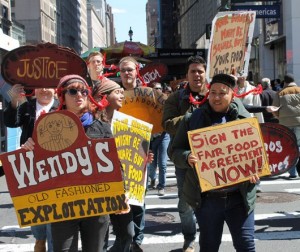

CIW – Fair Food Program: Wendy’s
Last year Trader Joe’s and the Coalition of Immokalee Workers signed an agreement that formalized the ways in which Trader Joe’s support the CIW’s Fair Food Program, a hard won victory.. Since then efforts have turned to companies such as Publix supermarkets in Florida and the Wendy’s fast food chain. Recently, Fair Food activists across the country visited their local Wendy’s to deliver a message: It’s time to join the rest of the fast-food industry and support the Fair Food Program.
Emilio Faustino:
Translator Joe Parker:
- We’re farm workers who come from the town Immokalee, Florida that’s based in the Southwestern part of the state. Our community is a farm worker community and for many years we faced a number of different kinds of exploitation, poverty, wage theft, physical and verbal abuse as well as sexual harassment of many women working in the fields.
- We began our campaign focused on the big corporate buyers of the produce that we pick back in 2001 in an effort to improve wages and working conditions in the fields, we began with Taco Bell and from there had campaigns with McDonald’s, Burger King, until as you said 11 other companies came to the table to dialogue with farm workers and work to improving those wages and working conditions in their supply chains.
- We’re here in New York focused on Wendy’s fast food chain. For a number of years the coalition has been sending letters to the fast food chain asking them to join the Fair Food program. We launched a public campaign with them earlier this year but thus far they have ignored us.
- We want Wendy’s to do what most of these corporations have done, that’s pay one penny more for each tomato that they buy.
- We’re here for the Wendy’s shareholder action, and we’re going to be organizing an protest on Saturday, May 18, at 2PM at Union Square to send a message to company’s investors that this is something that farmworkers in Wendy’s supply chain really deserve. There will also be a number of actions taking place that day all over the country in a number of communities standing together with the CIW.
- Contact: www.ciw-online.org, email: workers@ciw-online.org, 239-657-8311
Guest – Emelio Faustino, farm worker, CIW activist living in Florida. He is among other workers picking tomatoes by hand for 10-12 hours per day, while getting paid 50 cents per bin, or about 200 to 283 dollars per week.
Guest – Joe Parker, CIW spokesman and translator.
—————————————————–
Civil Liberties, Criminalizing Dissent, FBI Intrusion, Habeas Corpus, Human Rights, Political Prisoner, Prison Industry, Supreme Court, Torture, Truth to Power
Podcast: Play in new window | Download
Updates:
—
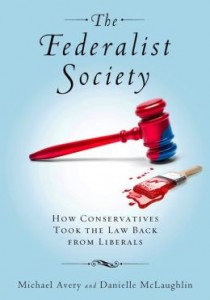

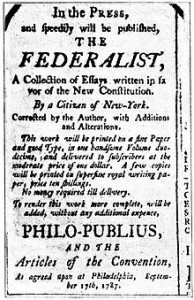
The Federalist Society: How Conservatives Took the Law Back from Liberals
Has the Department of Justice been taken over by a conservative organization little known to the average citizen? In the recently published book titled The Federalist Society: How Conservatives Took the Law Back from Liberals authored by attorney Michael Avery and Danielle McLaughlin track the movements of a small group of conservative law students and their influence. The Federalist Society has lawyer chapters in every major city in the United States and student chapters in every accredited law school. Members include economic conservatives, social conservatives, Christian conservatives, and libertarians. They all differ with each other on significant issues, but cooperate in advancing a broad conservative agenda.
Attorney Michael Avery:
- I saw how much power and influence the Federalist Society had during the years George W. Bush was president and at the same time I realized most people don’t know very much about them.
- They remained under the radar, I thought it was important to tell their story.
- They came along just at the right time for them, it was really kind of a perfect storm for them. Ronald Reagan was in the White House, you had a general renaissance of conservative thought that was promoted by people like Bill Buckley in the National Review, you had resistance to school integration and forced bussing. So there was a backlash waiting to happen against some of the things that happened in the law.
- It’s very important to recognize the role Ed Meese played. First he was counselor to the president then he was attorney general, later he became a principle figure at the Heritage Society.
- Many people are open members of the Federalist Society, others not so much but through a variety of sources I think we’re very confident that the people in that appendix either are members or very close to the society and sometimes I call that list the 100 most powerful people in the country and most of them you never heard of.
- About half the members that George W. Bush appointed to the Federal Court of Appeals were members of the Federalist Society.
- This battle over whether the government is able regulate private property has been one of the principle ideological battles of American Constitutional law since the end of the 19th century.
- They argue that property rights are a natural right that everybody is entitled to.
- It’s better to tolerate disagreement than to try to be 100 percent correct all the time.
Attorney Danielle McLaughlin:
- The substantive areas of law that we’re seeing this test cases brought in are very much reflective of the core values of the society. Those are notions of small government in particular small federal government. The idea that the state exists to preserve freedom.
- Many are involved in public interest law firms who go out and find plaintiffs and challenge regulation at the state level and in many cases have been successful in challenging laws in opposition to their world view all the way up to the Supreme Court.
- They really worked this very large network that they developed.
- Olen Foundation says here’s some money go out and build an institution.
- The Federalist Society today is not handicapped by having to report back or meet short term goals. The conservative funders believed in long term institution building.
- There are Federalist Society student groups on the campus of every single accredited and some unaccredited law schools. There are lawyer chapters in every single major city. There are affiliated Federalist Society groups outside the country.
Guest – Civil rights lawyer Michael Avery, professor at Suffolk University Law School and former president of the National Lawyers Guild from 2003 to 2006.
Guest – Co-author and attorney Danielle McLauglin, member of the Litigation and Dispute resolution group.
—–
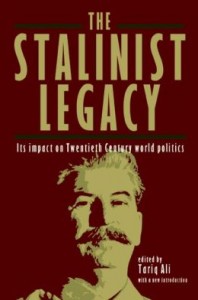
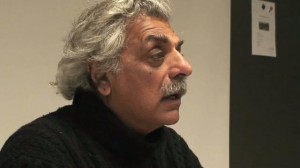
The Stalinist Legacy: Its Impact on Twentieth Century World Politics
We go now to hear a presentation by internationally acclaimed Pakistani writer and film maker Tariq Ali during a New York City book launch of his new book The Stalinist Legacy: Its Impact on Twentieth Century World Politics. Karl Marx’s often quoted observation “History weighs like a nightmare on the brain of the living” is so true. Even 20 years after the Soviet Union’s collapse, activists are still confronted by the legacy of Stalinism at the same time capitalism has failed millions of working people in the United States and across the world.
————–
CIA Sponsored Terror, Civil Liberties, Criminalizing Dissent, FBI Intrusion, Habeas Corpus, Human Rights, Military Tribunal, Political Prisoner, Prison Industry, Prosecution of the Bush Administration, Surveillance, Targeting Muslims, Torture, Truth to Power, War Resister
Podcast: Play in new window | Download
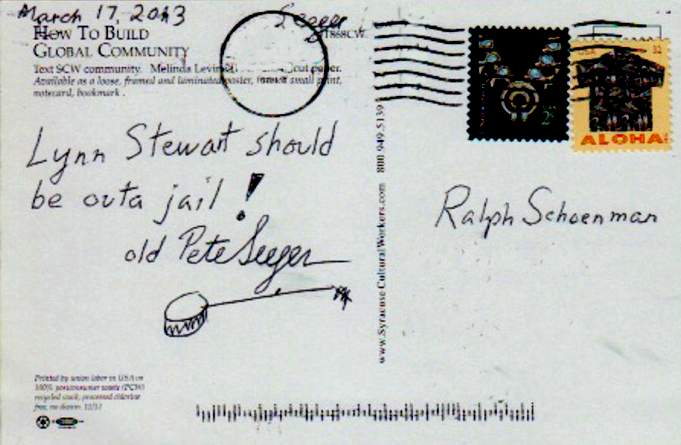
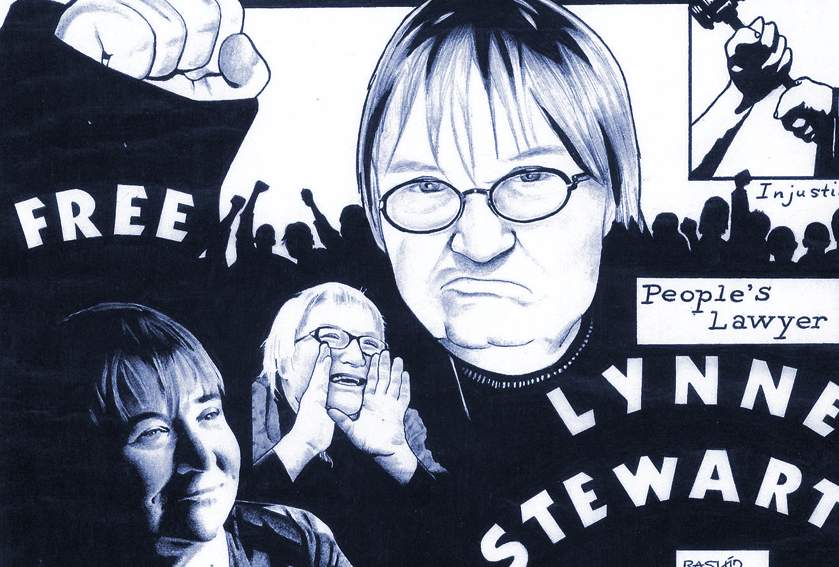
Please Sign Petition To Help Lynne Stewart
Long time literary agent Francis Goldin has for years visited inmates on death row. She’s recently returned from visiting Lynne Stewart in the Carswell Medical Facility in Texas. She joins hosts to talk about her visit.
Francis Goldin:
- We were there for 4 days and most of the time we were in the prison with her.
- If we kissed more than once, or hugged more than once she would be fined.
- That’s how they become correctional by denying kissing and hugging and loving.
- We were only there for about 70 hours, we didn’t have enough time to talk.
- The day we left, all the plans were changed, no more 4 day visits, only Saturday and Sunday. The inmates were heart broken.
- The breast cancer has moved to her lungs. The reason she has it in her lungs is because they didn’t treat her when they should have.
- It’s tremendously important to go to LynneStewart.org and sign on for this release.
- When you sign on, email every person on your list whether its 10 or 500.
- It’s really important that we send a million signatures.
- I visited Maroon for 27 years, every 3 months. I was there for 2 whole days.
- Lynne Stewart Compassionate Release Petition
- Please Also Write to: Charles E Samuels Jr. / Federal Bureau of Prisons /
- 320 1st Street Northwest / Washington DC 20534
Guest – Francis Goldin, has worked in publishing for 63 years, as an agent and as editor-in-chief of a children’s publishing company; she founded the Frances Goldin Literary Agency and sold her first book in 1977. Authored by Black anthropologist Betty Lou Valentine and titled Hustling and Other Hard Work, the book continued to receive royalties for 32 years. Among her clients are Barbara Kingsolver, who she has represented for all of her 14 books, Mumia Abu-Jamal, Dorothy Allison, Frances Fox Piven, Martin Duberman, iconic feminists including Charlotte Bunch and Esther Newton, more.
——–
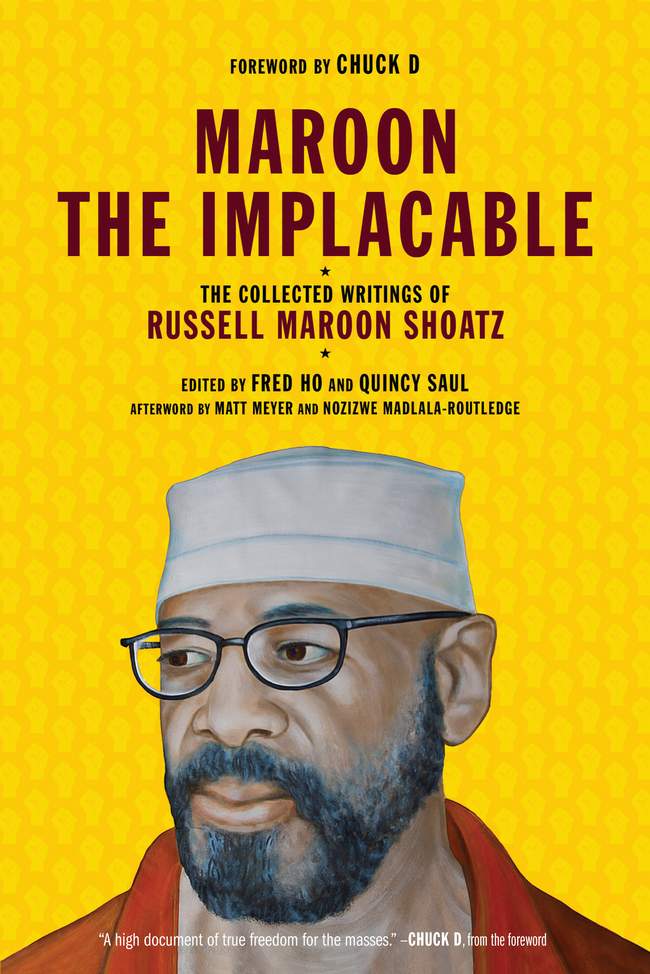
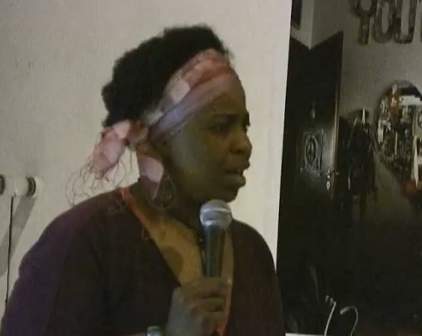
Maroon The Implacable
We welcome back Teresa Shoatz, daughter of political prisoner Russell Maroon Shoatz who has spent 39 years in the US prison system. As many listeners may know, Russell Shoatz has been held under intense lock down spending no more than one hour a day outside of his cell for the past 21 of those years. He was locked up in 1972 for his activity as a member of the Black Liberation Army.
Meanwhile, Theresa Shoatz is on book tour promoting her father’s book titled Maroon The Implacable. We catch up with her in Chicago while on tour. Maroon The Implacable is the first published collection of his accumulated written works analyzing the prison system, imperialism, the drug war. He also writes with great insight about the Maroon communities throughout America. Newer essays examine current political movements including eco-feminism and matriarchy
Theresa Shoatz:
- Maroon had been told that he would die at SCI Greene. For him to be free from prison in general, would be when I would say we have won.
- We’ve been fortunate to have Bret Grote, assistant to the legal team. Dan Kovalic and we just got a major commitment from a big law firm.
- Maroon has been writing since the eighties. In the nineties, some anarchists took his writings and put them in a zine, and took them throughout the United States and into Canada. They were used for education.
- So you get Maroon’s span from the eighties, to the present day.
- His view now on women is so incredible because he stressed how important women are to the movement throughout the sixties and the seventies.
- At that time he didn’t recognize how important the women were. The women, I would say are really the back bone of any community.
- On his second escape we was returned to prison an inmate said to him, they had a hell of a manhunt on you, you were chased down like a “Maroon.”
- He didn’t know anything about the Maroons. He dug in deep about their history and how they came about.
- The Maroons were slaves who had escaped from plantations, some went deep into the woods and joined with Native Americans and some poor whites who were totally against this slave thing.
- His digging into the history of the Maroons, he also involved me and my siblings. They were so awesome because they were fighting off attacks, also in the Caribbean areas, even into Mexico.
- Maroon has endured such torture, just outrageous treatment. Twenty plus years of no-contact visits. The impact of this really does control mindsets.
- Maroon doesn’t have computers nor has he seen one up close. He does everything long hand, and through snail-mail.
- Right now, I’m at the University of Texas. I’m presently with the dean and a professor in a writing class.
- If they haven’t heard of him, they want to know more.
- We have to step over what this government has thrown at us.
- They have more a hand on these youth than some these youths own parents.
- When you can punch right through that wall that’s candy coated reality system that our youth are mixed up in, its not only uplifting for me but for them.
Guest – Theresa Shoatz, a Philadelphia-based prison justice activist and the daughter of Russell “Maroon” Shoatz.
——-


Shadow Lives: How the War on Terror in England Became a War on Women and Children
It’s obvious and yet an unfortunate reality, war, prisoners of war and the prison industrial complex tear apart families. Very seldom are the voices of family members heard that were left behind by the tragedies of war. In the book Shadow Lives: How the War on Terror in England Became a War on Women and Children, author Victoria Brittain brings the reader close to these individuals who’s lives were capsized by war. They’re usually socially invisible and their civil liberties are often trampled by the state under the guise of the “war on terror.”
Victoria Brittain:
- I got involved way back when people began disappearing and they were described as the worst of the worst by Donald Rumsfeld and George Bush. Some of those people came from Britain and we didn’t know anything about them.
- A friend of mine had a project to do verbatim plays about the families, and he asked me to be the person to interview the families to try to find out who these people were and what had brought them together in Guantanamo Bay.
- I find complete confusion. Nobody in the families knew anything about why their son or their brother had ended up in Guantanamo Bay. In the course of that I got to know some of the families.
- I was particularly curious about one family that didn’ t want to cooperate in the play which was a Palestinian woman with five children, living alone and not speaking much English.
- I wrote to her about the play and told her how ashamed I was of my country from the research that I’ve done.
- We became close friends. Through her and her children, I met other women.
- Over these past ten years its been a rich experience, and sobering experience about injustice.
- I think she was suppressing the agony and loneliness and fear that she was in, course she was so desperate to have her children approach something of a normal life.
- It was only when other people began to come back to Britain from Guantanamo, that we began to get a picture the conditions in which people were.
- Her husband had gone off to west Africa with 3 or 4 other men to try and start a peanut business. This was his idea as a refugee Palestinian in Britain. He wanted to find a way of making a life for his family.
- When she found out he was taken from Afghanistan to Guantanamo, she was completely, . . there was no explanation.
- There was absolutely no recourse for her for a long time.
- It’s so sad, the Obama administration, he said he was going to close Guantanamo, here we are years down the road, these innocent people are still there and in the last 3 months, these people have become so desperate, because Congress is blocking them from getting out.
- Again and again, every legal victory from CCR has been overturned by a higher court.
- For these men, they really feel they’re at the end of the road.
- The horror of this has been so well laid out by so many lawyers. I find it astounding that there isn’t an uproar in Congress.
- Thank goodness Sami-Al-Arien is no longer in prison, but he’s under house arrest.
- Most of their friends turned away from them.
- He spent about five years in about a dozen maximum security prisons.
- FreeSamiAlArian
- The British and American intelligences work so closely together.
Guest – Victoria Brittain has lived and worked as a journalist in Washington, Nairobi, Saigon and London. She worked at the Guardian for 20 years and is the author of Death of Dignity: Angola’s Civil War, and Enemy Combatant.
———————————————————————————
CIA Sponsored Terror, Civil Liberties, Criminalizing Dissent, Habeas Corpus, Human Rights, Political Prisoner, Prison Industry, Surveillance, Torture, Truth to Power
Podcast: Play in new window | Download


Political Prisoner Russell Maroon Shoatz Update
We welcome back Bret Grote, a member of Russell Maroon Shoatz’s legal team. Political prisoner Russell Maroon Shoatz who has spent 39 years in the US prison system. As many listeners may know, Russell Shoatz has been held under intense lock down spending no more than one hour a day outside of his cell for the past 21 of those years. He was locked up in 1972 for his activity as a member of the Black Liberation Army. Bret gives us an update in recent developments of the case.
Bret Grote:
- Almost 2 weeks ago, I went to SCI Greene with a member of the legal team and Maroon’s son, Russell Shoatz III, and when we went into the visitor’s lobby we were informed that he was no longer there.
- After 18 years at SCI Greene which has the largest restrictive housing units which is the solitary confinement units, he had been transferred to SCI Mahanoy which is where Mumia Abu-Jamal is currently located in the general prison population.
- He was transferred there Thursday March 28, 2013, we put in calls the next day to inquire what was going on.
- We actually know this move is in response to the growing pressure campaign that is being waged. The growing support around the country and the legal team having increasing visits.
- The legal team is Dan Kovalic who represented Maroon in his due process based challenge in solitary confinement in the late 90s. There are also 2 attorneys from a large international litigation firm.
- There’s Dustin McDaniel, who along with myself has formed an organization called the Abolitionist Law Center and five students working on his case.
- There was a letter sent to Secretary Wetzel’s office stating that if he’s not released into the general prison population within 30 days a civil action will be filed.
- The major one is the 8th Amendment on prohibition of cruel and unusual punishment. The law on solitary confinement is not very good but its also emerging in response to the 30 year emergence of this type of supermax style long term lock down as an affirmative policy of prison management.
- The basic rule of law is that solitary confinement is not unconstitutional per say, but there needs to be a fact specific inquiry into conditions of confinement and also the degree of harm that is imposed upon the prisoner.
- The prison officials need to demonstrate indifference to the deprivation of basic human needs.
- There are some other grounds that are being put forward to challenge solitary confinement. One of these is happening in the state of New York right now, where the NYCLU has begun representing an individual who was bringing a case pro se.
- Duration is one of the considerations that’s supposed to be taken into account by the court.
- The Supreme Court has been clear that the duration of deprivation is very significant for constitutional purposes.
- Maroon escaped from prison twice. After solitary confinement he was released in the general prison population at the state correctional institution in Pittsburgh in 1982.
- At this point Maroon had made a political decision. He had become part of the Pennsylvania Association of Lifers. This was a group approved by the prison authorities. After Maroon became involved and other lifers became involved to take more active role in their interest, more than 100 people began attending meetings there.
- They put him in solitary confinement based on participation in unauthorized meetings even though all the meeting spaces had to be opened by staff.
- Since 1989 he’s had only one disciplinary infraction while in the prison.
- Covering the vent in his cell, it was blowing cold air – SCI Greene.
- Maroon was constantly engaging all the other prisoners in educational seminars, studying lessons on geography, on history on working with people to transform their criminal consciousness into community oriented activist consciousness.
Guest – Bret Grote, member of the Russell Maroon Shoatz legal team and member of the Abolitionist Law Center.
—–
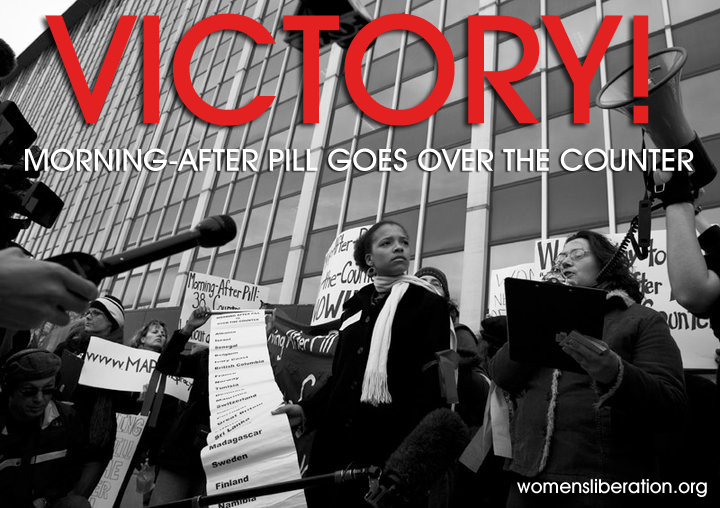

Court Orders FDA to Remove All Restrictions on the Morning-After Pill
After a multi-year grassroots campaign and an equally long lawsuit, the morning after pill will finally be available to females of all ages on the pharmacy shelf, without a prescription or point of sale or age restriction. This is thanks to a recent federal court reversal of decisions from the FDA and DHHS, under both the Bush and Obama Administrations. The US now joins at least 63 other countries including the UK, Denmark, France and Ghana in making the morning after pill available without a prescription.
Attorney Andrea Costello:
- The case was originally file in 2005 and this was after the FDA had really stalled out and delayed for years in its decision making in whether to put the morning after pill over the counter.
- Originally the morning after pill was prescription only and had to show identification in order to get it.
- In 2005, the government made a decision to make Plan B available for women over 18.
- Under President Bush, decisions were made by high level officials within the FDA to deny access to the morning after pill to women and girls. That was really an effort to appease the administration’s constituents.
- It was based on anti-birth control politics and not science.
- In 2011 for the first time in history, we saw Health and Human Services under the Obama Administration overruling a decision by the FDA when the FDA decided it wanted to put the morning after pill over the counter without an age restriction.
- The lawsuit has always asked for unrestricted access to the morning after pill and all forms of the morning after pill meaning emergency contraception for all women and girls in the United States regardless of age without any restriction on how its sold.
- In the history of our country no one has ever had to show their identification in order to get birth control.
- I think of this victory as building on the pioneering work of our feminist sisters in the National Lawyers Guild that I’ve had the opportunity and honor to work with.
- Catherine Roraback and Rhonda Copeland, Carol Sobel, Mara Verheyden-Hilliard
- We will be looking forward to seeing it in the grocery stores in 30 days.
Guest – Attorney Andrea Costello, Partnership for Civil Justice Fund Senior Staff Attorney representing the NWL Plaintiffs.
—


It Was Genocide: Armenian Survivor Stories
99 years ago this month marks the beginning of the systematic implementation of a plan to exterminate the Armenian race. Carried out by the Young Turk government of the Ottoman Empire, over half of the Armenians living in the Empire were killed.
To commemorate this, the first genocide of the 20th century, Law and Disorder co-host Heidi Boghosian and producer Geoff Brady present part of the 90-minute program titled, It Was Genocide: Armenian Survivor Stories.
We wish to thank WBAI for their commitment to recognizing the Armenian genocide, and are grateful to the following individuals for opening their hearts and sharing the difficult memories of the past: Jennie Garabedian, Harry Mazadorian, Roxy Garabedian, Lucy Simonian, Roxie Maljanian, Mary Abrahamian, John Maljanian, Agnes Karanian, Ruth Swisher, and Artie Shahverdian.
For stations that want to air full 90 minute documentary
————————————-

























